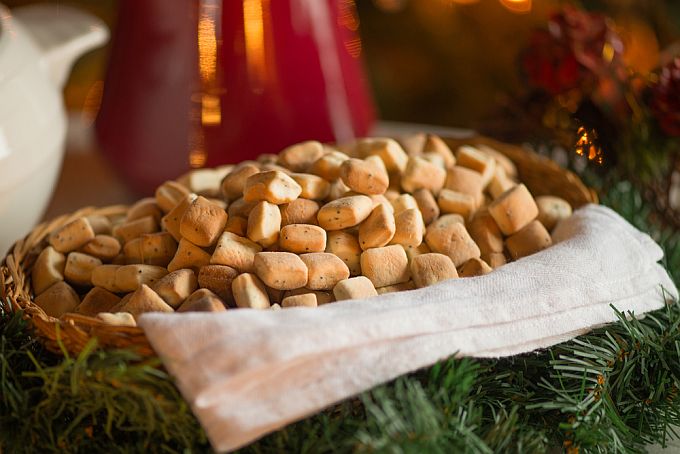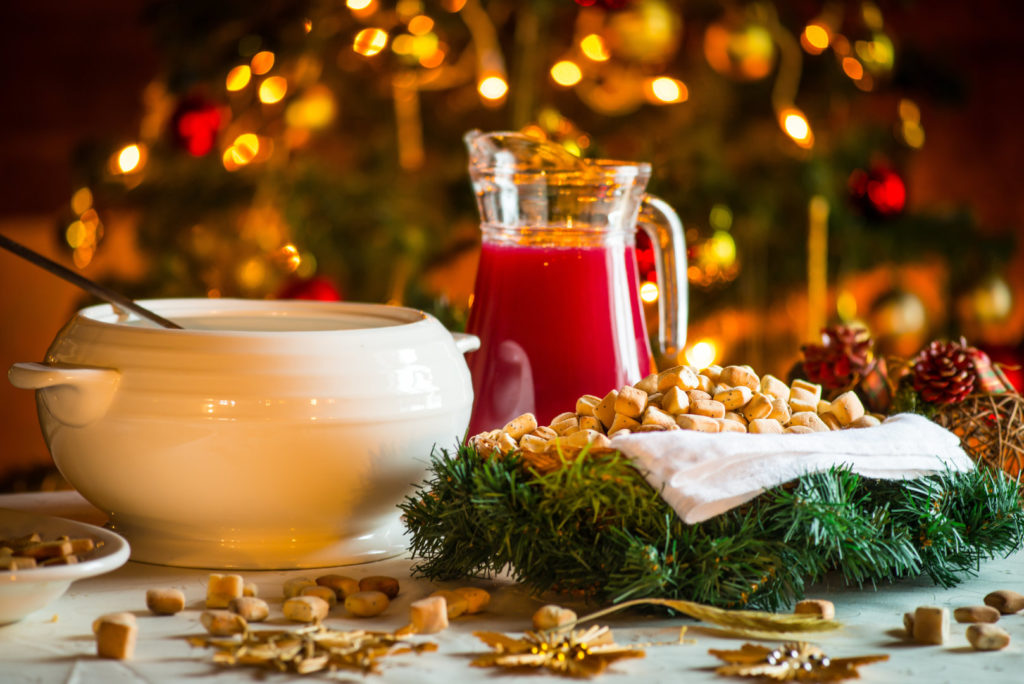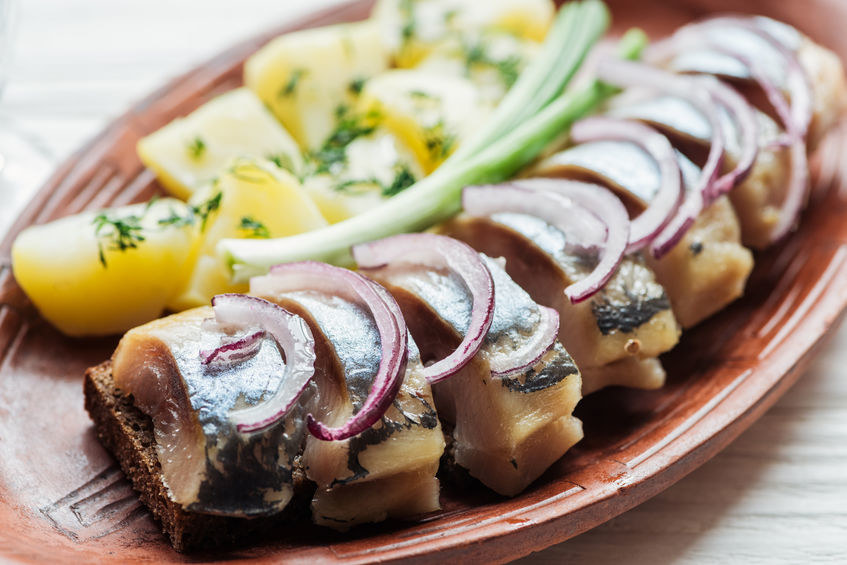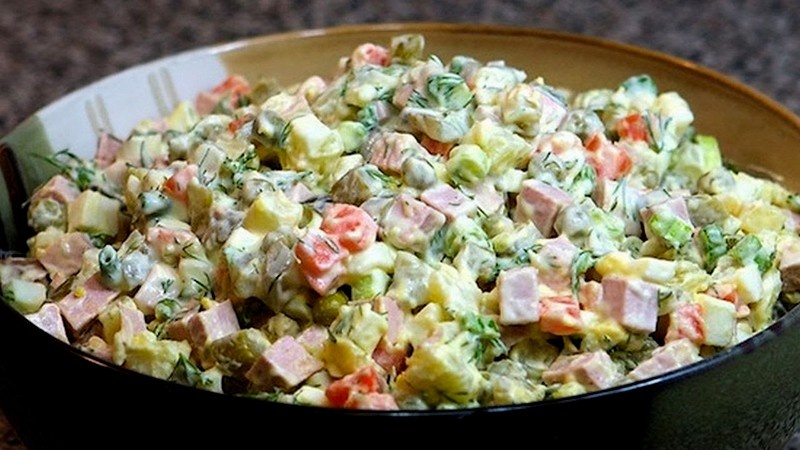
Family, Fish and Poppy Seeds
If your parents were post-WWII immigrants to Canada (or the US) and lived in or near Lithuanian émigré communities – you may have similar memories of Chistmas: pageants (Eglutės) and poems at Lithuanian Saturday school, Nativity scenes at church, nodding off against Dad’s shoulder at Midnight Mass, and of course Kūčios, the Christmas Eve meal to be squirmed through before opening gifts beckoning from under the Christmas tree.
As we grew up, priorities had already changed regarding Christmas celebrations. We read about the “olden” days, when Kūčios was a sombre meal, the last day of prayer and fasting before Christmas, with no meat or dairy, only grain dishes and root vegetables. In a holdover from pagan times, it was also a night of mystery and magic, with farm animals speaking and the souls of ancients coming to visit. Premonitions and various superstitions were rampant.

With time and prosperity, traditions evolved and most households expanded their Kūčios meals to include dishes such as beet and other salads, fish and herring in various forms and sauces, poppy seed milk with hard biscuits (kūčiukai or “šližikai”), dried fruit compote and cranberry pudding (kiselius) being part of the special fare. Rich, festive cakes and “babkas” were a must.

Some grew up hating and continue to dislike herring, or poppy seed milk (a holdover from the non-dairy times), but now cured or baked salmon, shrimp and other seafood delicacies have arrived on the menu, and with less pressure from elders – and years of throwing out uneaten poppy-seed milk – the rules surrounding this special meal have become less stringent. Some of the old recipes also became too complicated for us to make and too strange to our children – such as the centrepiece stuffed pike Mom used to make.
Most of us continue to respect the no-meat rule, but the “last day of fasting” meal is certainly no longer a hardship. For the fish-haters there are often pancakes, crepes or dumplings with various fillings and accompaniments. At our house, we never had beet broth as a first course – a custom that had regional origins in Lithuania. But fish in tomato-onion sauce is a huge favourite, and must be made in enormous amounts so that everyone can take some home for Christmas Day brunch. Smoked salmon and other cured or smoked fish are popular among adults, and mushrooms are a must in one form or another. Beet “vinegretas” (mišrainė) and potato salad are now standard.

We may obsess for at least a whole week about the number of Kūčios dishes to serve and their variety, but when we share the Christmas Eve wafer with one another at the beginning of the meal, hopefully we may stop to reflect on the meaning behind it all – the reason for the season. And as we get older, we also remember other Kūčios, shared with family members now gone, whom we cherish in our hearts on this special night. RJ





























